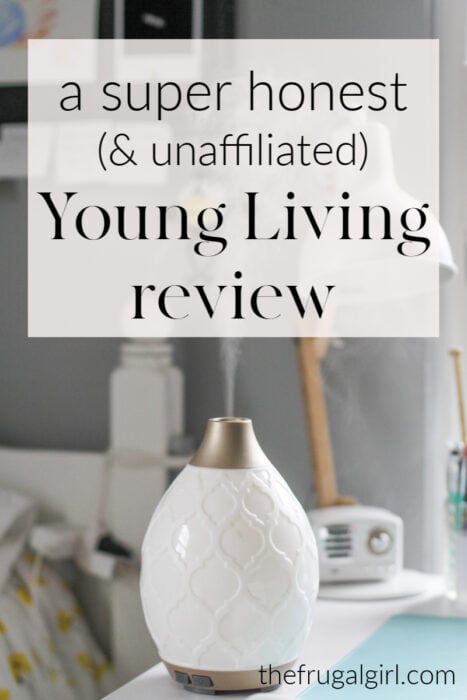
I got this email about a year ago:
Kristen,
I was wondering what your feeling is about the essential oil craze that is going on now? I am a member of Young Living but it is super expensive so I don’t order all the time. I also get from Eden’s garden and they are a lot cheaper with the same grade oils. I like them for certain things like air freshener and peppermint is awesome for headache and to help me sleep.
-Sonya
My friend Stacy from Humorous Homemaking is pretty high up in Young Living, so after I got this reader email, I signed up under Stacy and gave oils a test drive (with my own money. Nothing I’ve gotten from Young Living has been complimentary.)
Today, I’m gonna share my super honest thoughts with you, because my views on essential oils are pretty mixed.
What I DO believe about essential oils (and Young Living in particular)
Let’s start with the good!
1. They’re natural fragrances.
This is, in my opinion, the best use for essential oils: as replacements for the artificial fragrances that are in personal care and cleaning products.
It does seem rather clear that the artificial fragrances that many manufacturers use are not great for our bodies, and this is a view held not just by people in the essential oil community.
(For example, here’s an article from the U.S. National Library of Medicine.)
So, I think essential oils are a safer option than artificially scented candles and plug-in air fresheners, and they’re a better option for making cleaners and personal care products smell good.
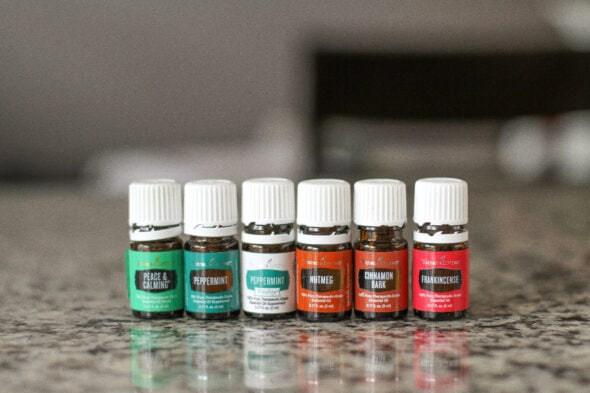
2. There seem to be some benefits to some oils.
Consumer Reports lists a few benefits that have been studied, such as using lavender for anxiety.
I used the word “some’ in this section header, because I have a certain amount of skepticism about oily benefits.
I’m not saying I think every purported essential oil benefit is false, but before I feel positive that the oils do what people say they do, I’d want to see more actual studies, with control groups and such.
There are a zillion anecdotes out there, of course, but the plural of anecdotes is not data.
(This New Yorker article mentions a few studies, but points out that there have been “very few peer-reviewed, large scale studies” on essential oils.)
3. Breathing in good smells is enjoyable and relaxing.
I like diffusing a citrus blend, not for any health reasons or for any particular benefit. It just smells good; fresh and clean!
And anything that makes you stop and take deep, slower breaths is going to have a positive effect on you; not because of what you are breathing, but because you are breathing slowly.
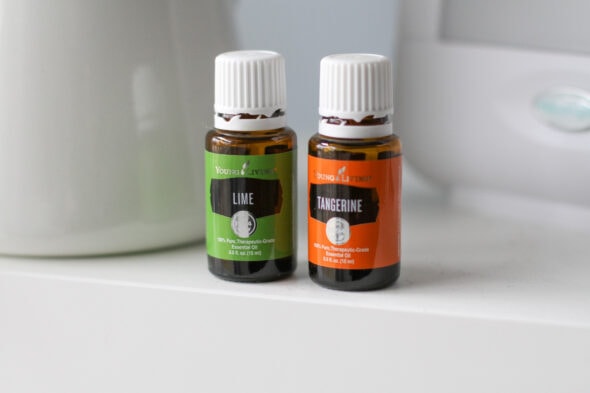
4. Young Living’s oils are probably better than really cheap oils.
The cheap oils at Aldi or the ones at craft stores…I feel a little bit skeptical that those are very high quality, and I often see that they are mixed with a carrier oil.
I do think that Young Living oils are, generally, high quality. They offer a seed to seal promise, and they do own a lot of the farms (which are not just in the U.S.), but some of their oils come from partner farms or from other suppliers.
I would imagine this includes things like frankincense oil, which can’t exactly be farmed.
However, there still has been some controversy over how pure the YL oils actually are
(Here’s another news article about the purity of oils in general, with a mention of some YL testing.)
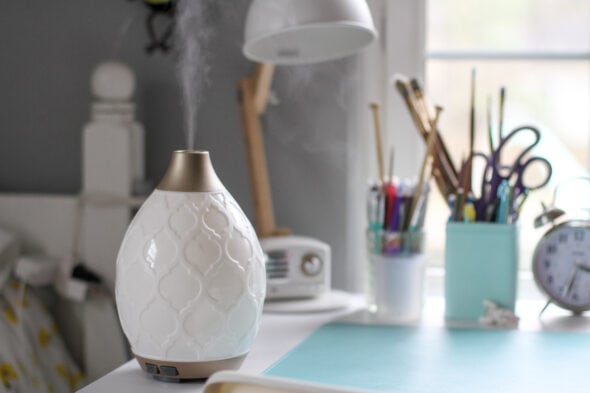
My essential oil issues (with some specific to Young Living)
While I’m not against essential oils (see above!), I am also not a die-hard convert, and here’s a list of reasons.
1. I wonder about the placebo effect.
Without blind studies to rule this out, it’s impossible to know how much the placebo effect is in play here.
In my observation, the essential oil community is big on positive thinking and believing that the oils will help, and so I wonder how much of the anecdotal benefits are because of the placebo effect.
The placebo effect is amazingly powerful (Harvard Health link), and honestly, if something non-toxic brings about a placebo effect, I think that’s fine and dandy.
However, I’d really like to know if the oils are doing something or if they’re not. So, hopefully someone will do some studies!
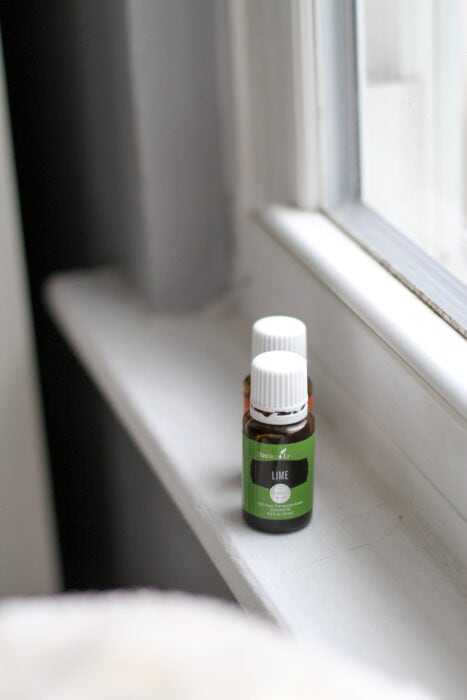
2. I am skeptical about some of the blend claims.
Is lemon a refreshing, energizing smell that could make you feel perky?
Sure, I can believe that.
But I feel iffy about some of the more specific Young Living oil blend promises.
For instance, there’s a Finance oil, and the blurb says it,
“promotes a sense of well-being that encourages positive emotions and increased feelings of abundance. This uplifting aroma promotes a sense of clarity and alertness to help you focus on realizing your financial objectives.”
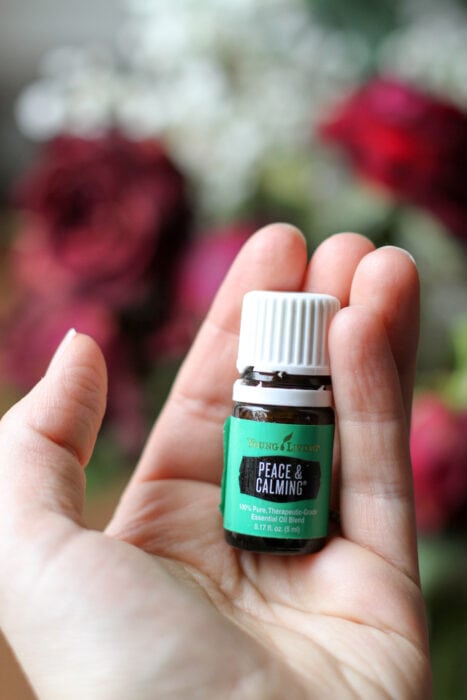
And the Forgiveness oil blurb says that the oil,
“contains an aroma that supports the ability to forgive yourself and others while letting go of negative emotions.”
Is it possible that if you diffuse Finance every time you work on your budget, that your brain will begin to associate that smell with financial responsibility?
Probably.
But I am not sure that the actual oil ingredients are bringing about feelings of abundance.
And is it possible that the same thing will happen if you diffuse Forgiveness while you sit quietly and pray? Sure.
But is the actual forgiveness oil doing anything in particular?
I am, at this point, unconvinced.
3. I do not love that Young Living is an MLM.
MLM = multi-level-marketing, like Mary Kay, Avon, Tupperware, Lularoe, etc
I know that YL says they decided on an MLM model because they wanted to be sure the people promoting their product were actually using the product.
(Even at lower levels in Young Living, you have to buy $100/month of product if you want to continue earning commissions, which does effectively guarantee that distributors will be using the products. But it also guarantees Young Living an income from each distributor.)
I’m not writing this post to bash MLMs (if you are in one and your income exceeds your expenses, then I will cheer you on!) but I will just say that for a wide variety of reasons, I do not love the setup of any MLM company.
Slightly related: D. Gary Young, the founder of Young Living, has a history that makes me uncomfortable. (Consumer Reports link)
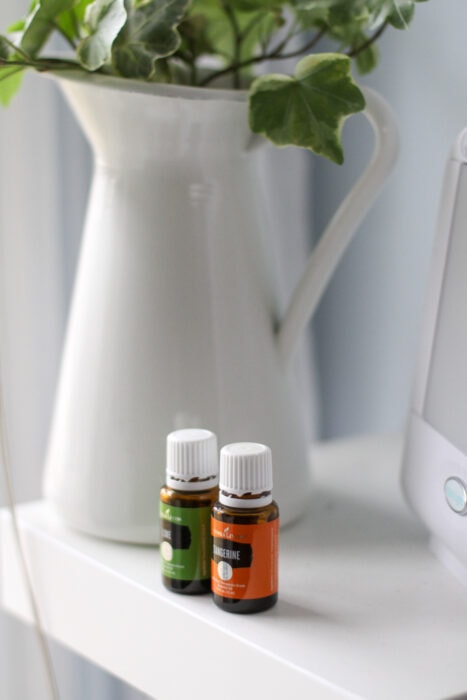
4. How much benefit is from the ingredients, and how much benefit is from what’s NOT in the products?
I do believe that many people who switch to Young Living products (personal care, cleaning products, etc.) experience clearer skin, relief from eczema, better breathing, and so on.
However, I wonder how much of that relief is because of what the products do not contain vs. what they do contain.
If it’s about what they do not contain, then you could obtain similar benefits from purchasing natural body/cleaning products from any number of sources, which could be non-MLM and also less expensive.
(For instance, I use bar soap and lip balm from Third Day Naturals. Their products are free of artificial fragrances, they’re scented with essential oils, all of the ingredients are things I feel good about putting on my body, and Third Day is a small family company, which is awesome. The soap is $4.95/bar and the lip balm is $2.95/tube. Very affordable.)
5. I’d prefer to eat food instead ingesting an oil.
Young Living sells a line of Vitality oils, which are recommended for ingesting. But it is definitely cheaper to just use actual cilantro, basil, limes, and so on.
6. Some of Young Living’s products, such as their diffusers, are really expensive.
For instance, the Aria diffuser (which IS really beautiful) costs over $300. And even a lot of the more basic diffusers are between $60 and $100.
I’ve had the Young Living starter kit diffuser ($87) for the same amount of time as one from Amazon ($20), and I cannot see any appreciable difference in their performance or longevity.
Which makes you wonder: Why are Young Living’s diffusers so expensive?
I understand that you get what you pay for to some degree. A $50 pair of jeans is going to be higher quality than a $12 pair.
But a $500 pair of jeans is probably not appreciably better than the $50 pair.
Young Living’s diffusers are hitting me sort of like those $500 jeans; I don’t think you’re really paying for quality when you shell out $100 for a diffuser.
By the way, if you already have a Young Living diffuser, you might be wondering, “Can I use non-Young Living oils in my Young Living diffuser?”
People from Young Living would probably tell you not to do it, but I can tell you that we’ve been using other oils in our Desert Mist starter kit diffuser and it is still working just fine.
My Essential Oil bottom line
I have a lot of unanswered questions that can really only be answered with more studies.
Until then, I think essential oils have their place, and can be useful, particularly in place of artificial fragrances.
I have my doubts about some of the claims and about how much credit the oils can be given, but if people are using them and feeling better, then I have no argument with that.
My future with Young Living
Because of the hesitations listed above, I am not going to be a distributor. I will probably buy some basic oils somewhere like Whole Foods, just for scent purposes, but I’m just not in a place to be wanting to spend $100/month at Young Living.
And I am not enthused enough about the products to be a high-producing distributor that can earn more than $100/month.
(Evidence: this whole post. I am just not a good YL salesperson!)
If you do want YL oils, buy the starter kit.
The starter kit comes with a diffuser, 12 of the basic essential oils, some Thieves cleaner, and a few more things too. It’s definitely the best YL deal if you are wanting a variety of basic oils to diffuse.
It’s what I first bought to try out, and it comes with some good scents, like lemon and citrus fresh (that one is my favorite).
The premium starter kit costs $165, so it’s definitely not cheap.
But you can buy the starter kit and as long as you don’t join the Essential Rewards auto-ship program, you are not obligated to any future purchases or shipments.
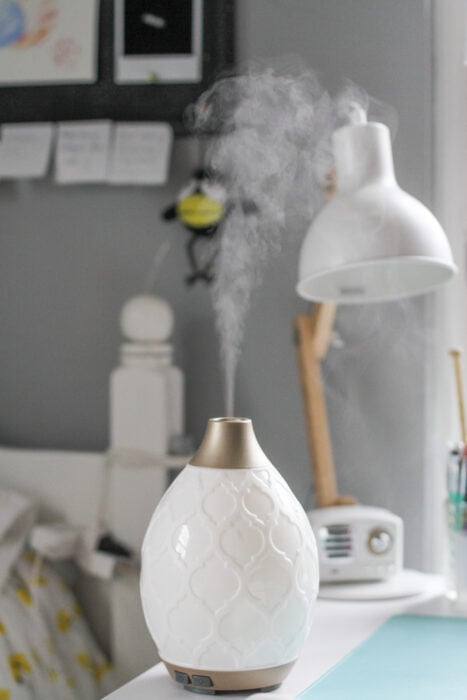
Honestly, though, I’d just go buy some oils from somewhere like Whole Foods or Sprouts and I’d get a dispenser somewhere else. I really like this one (branded “Earnest Living”. Ha.) from Amazon.
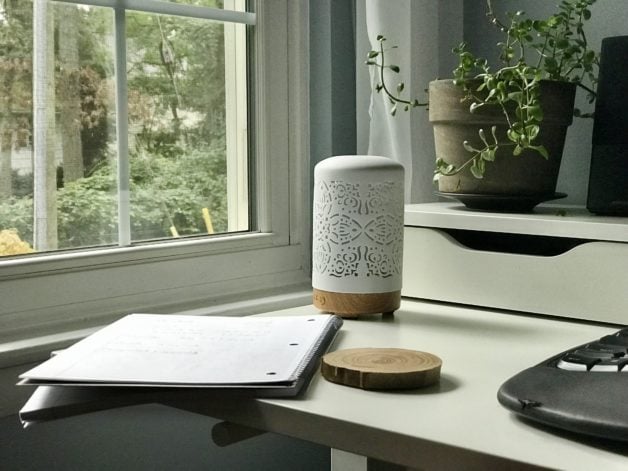
And now, 1700 words later, we are at the end of what I have to say on essential oils.
What’s your opinion on essential oils? I’d love to hear in the comments.
P.S. I labored carefully over this post for hours, trying to be fair and honest, and I hope the post doesn’t read like a judgment on people who use essential oils or people who sell them. I’m just trying to honestly answer my reader’s question about what *I* think.

garett
Tuesday 26th of September 2023
I haven't put too much thought into the paradigms of YL but one thing I can say is that, placebo or not, has benefited my being more so than not. Frankincense is a true life-saver. I have used Thieves to lessen the redness of my acne and also on my swollen tonsils when I am sick. Peppermint for nausea and awakeness. I believe these oils do work. With all the good, I have to add one small observation about the company that I think more people should know before they become more "involved." My grandmother was an absolute die-hard YL person. I don't think she was an ambassador but had a collection of one. Hundreds of bottles and different products. As Hurricane Harvey came through it wiped out her entire house and her Essential Oil collection with it. Thousands of dollars worth. She contacted the company and that resulted in her getting denied of any refunds or replacements. Since then, she hasn't invested too much in many more YL products. Just the essentials!
Andrew
Wednesday 19th of July 2023
All those companies like YL n Doterra gotta sell high to pay the people. I have a blend I’ve been selling for 26 years for chronic pain. It’s topical n It will out perform any essential oil blend on the market.
Brenda
Monday 8th of May 2023
Thank you for the information. Found it very helpful.
Patrick Langston
Tuesday 4th of April 2023
Here we are years later and there are a number of studies showing that many of the essential oils do indeed work for their purported claims. It's a little more complicated than using them based on what color they are associated with on the Chakra chart or anything like that.
But tea tree oil for instance is shown in studies to be antiseptic and effective against MRSA (antibiotic resistant staph infection).
Source:
https://microbewiki.kenyon.edu/index.php/Tea_Tree_Oil_Treatment_of_MRSA#:~:text=The%20efficacy%20of%20tea%20tree,continuous%20exposure%20to%205%25%20TTO.
Keena
Monday 4th of July 2022
I will say that I agree with you on some things about essential oils. I still have my reservations as well, however with that being said, I’d like to tell you my story. I have had stomach and intestinal issues that started about 15 years ago. I have had terrible Gerd, IBS, diverticulosis and Ischemic Colitis. There have been many other issues as well. I eat very healthy, lots of veggies, nuts, yogurt and healthy foods. After two trips in two months to ER, beginning in Christmas Day, I became quite desperate. I thought I was going to die. I was taking at least six medications just for my gut. I quit cold turkey, went to my local health food store and yes, I bought about $200 worth of stuff. I ordered several of essential oils. I am a member, but never tied any for digestion. I am now making my own capsules using fifteen different oils. I am doing wonderfully better! I’m scared to quit doing anything that I am doing. It’s only been four months, but I am feeling really good. With that, I’ll keep on doing what I’m doing!